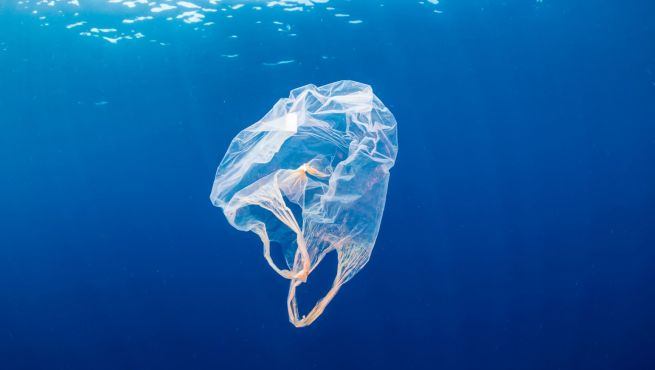
Compared to its more well-known relative Earth Day, World Oceans Day focuses on environmental preservation through the protection and conservation of our planet’s oceans. Recent headlines have highlighted the massive accumulations of plastic waste in our oceans and their harmful effects on the associated ecosystems. Years of improper disposal practices and the lack of infrastructure to support consumer recycling have taken their toll, and we have reached what seems to be a tipping point in the battle to reclaim and restore our oceans.
As a leading manufacturer of blown films, we feel it is our duty to not only provide more environmentally-friendly plastic film alternatives, but to also help educate the public on the proper disposal and recycling of the products we produce. In this special World Oceans Day Sustainability Spotlight, we’re taking a deep dive into how embracing sustainable plastic alternatives can make a huge difference in reducing ocean leakage.
Diving into the Facts
It is no secret that improperly disposed-of plastics are leaking into the environment, and our oceans, at an alarming rate. Approximately eight million metric tons of plastic finds its way into our oceans each year, creating long-lasting problems for marine life and marine-associated ecosystems. However, any discussion of the environmental impact of plastics must also address the fact that plastics inherently are not the issue.
A recent study by the American Chemistry Council shows that when compared to alternative packaging materials such as paper, glass, and metals, plastic (and plastic manufacturing) is generally deemed the more sustainable material in regards to energy use, water consumption, landfill poundage, and greenhouse gas emissions. Additionally, plastics provide countless benefits in regards to food preservation and the reduction of food waste by prolonging shelf life via gas and moisture barriers. This extended shelf life can help reduce unnecessary water usage in food production while also protecting our forests and wildlife that would have otherwise been subjected to deforestation when additional land is needed.
In regards to the potential negative environmental impact of plastics, the problem lies more so in the fact that much of the public lacks education on the proper disposal of plastic products, and recycling infrastructure has yet to catch up with production.
Recycled Resins: Cleaning the Ocean via Circular Economies
The most realistic long-term solution to the plastics problem is embracing a more circular economy. While establishing more accessible recycling infrastructure may seem like a tall task, a more immediate solution is to increase the use of post-consumer (PCR) and post-industrial (PIR) recycled resins. Increasing the use of PCR/PIR reduces the reliance on virgin materials in the plastic manufacturing process while simultaneously increasing demand for recycled materials. This leads to less “new” plastic being created, reducing opportunities for these materials to eventually become leakage and decreasing the overall manufacturing carbon footprint. In the simplest terms, less virgin material equals less plastic in the ocean.
To see how we can incorporate PCR/PIR into your next project, reach out to our technical team today.
Combating Waste with Compostables
Another emerging technology in the industry is the use of compostable film alternatives. Compostable films degrade by biological process without leaving behind toxic residues, reducing total landfill poundage that would be taken up by traditional non-compostable films. These films can be made from renewable plant-based sources such as polylactic acid or starch blends, and are designed for home and industrial compostable applications.
When properly composted, these films address many of the potential problems that traditional permanent plastic materials present to the environment.
Looking Ahead
IEF already offers a variety of sustainable plastic film solutions through their InteGreen™ Family of Sustainable Films. In the spirit of constant innovation and true sustainability, IEF’s technical team is looking into marine-degradable/water-soluble materials as well as expanding its collection of recycle-ready solutions. Our goal is to manufacture products that decrease the total environmental footprint throughout every stage of its life without sacrificing the quality that our customers have come to expect.
Want to learn more about IEF’s sustainability initiatives or sustainable products? Reach out today for more information.
Published June 2021



